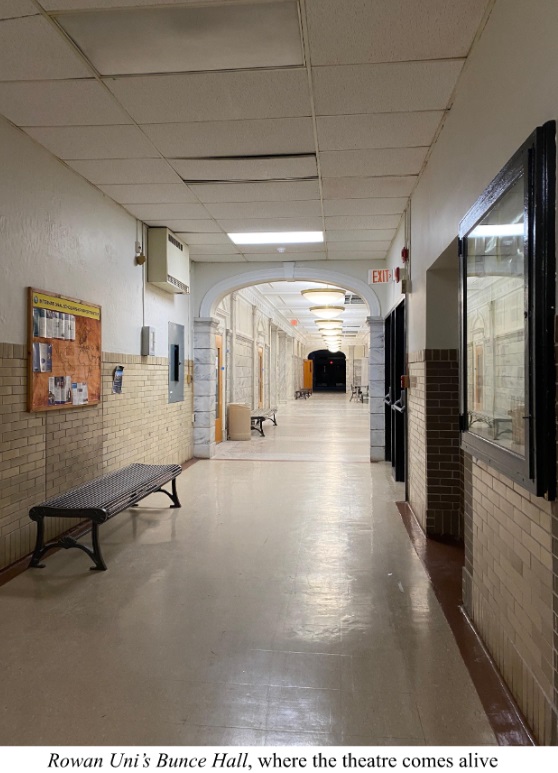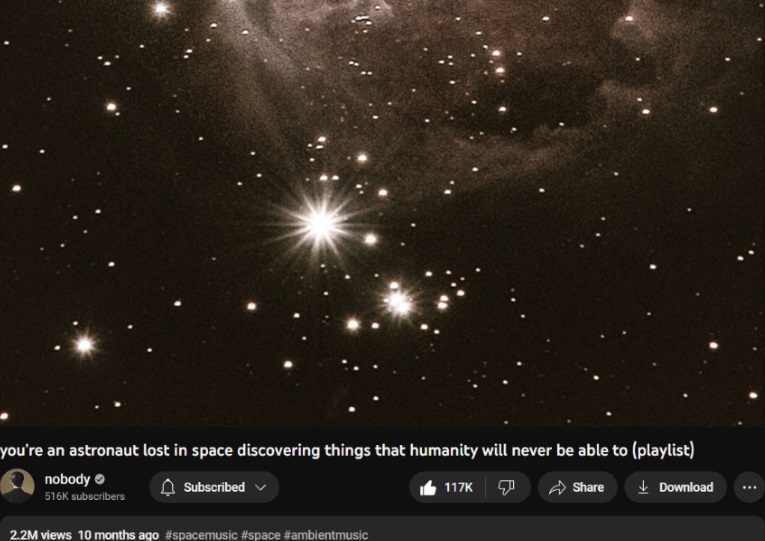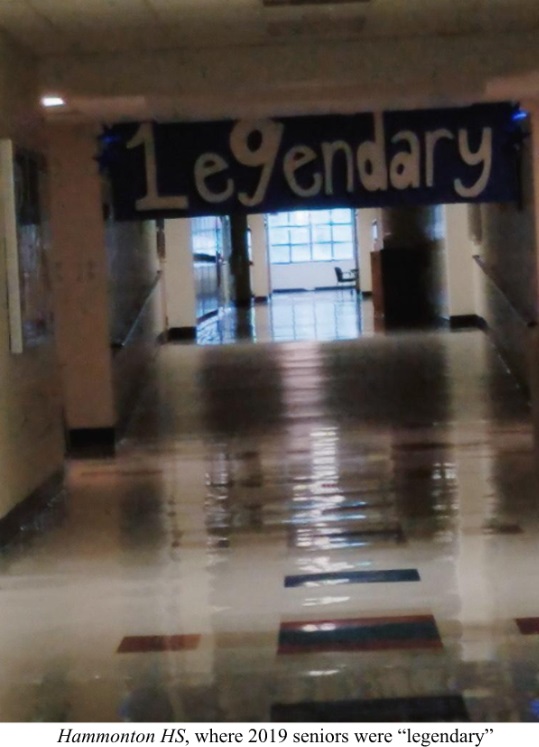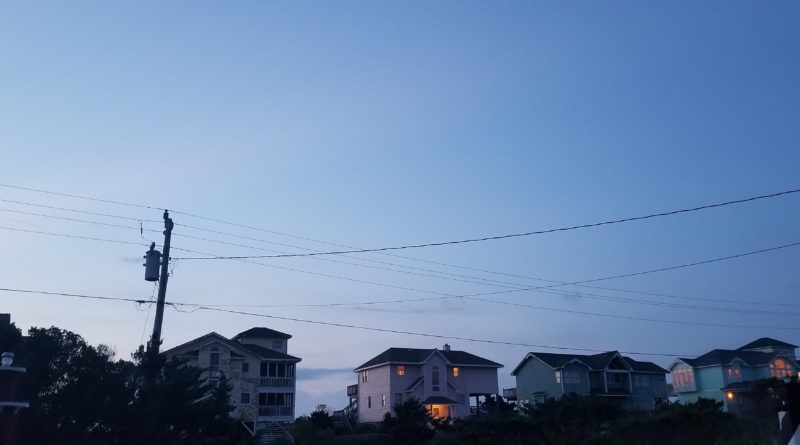your favorite song but you’re in the other room reading my article
It’s closing time. You decided to visit the old mall today, despite its social decline. Your local nostalgia trip is in the process of dying, but it feels like home. No one in sight, no timetable to follow. Bag of Auntie Anne’s in hand, you wallowed in the building’s ambient breath: washed-out ceramic tile, neon lights in the food court, frozen escalators, penny fountain wade pool. Familiar music crackled from the speakers with strong reverb, reminiscent of another world, another story. It’s closing time, but everything is just opening.

Pearse Anderson, a journalist from the site Sound of Life defines “from-another-room song edits” as “…taking environmental noise to the forefront of music, layering pop hits into new and varied environments, like a beachside where you can hear the wash of waves or an empty cathedral where the ceilings bring enormous echo to the chorus.” To hear music played from another room or through those gigantic mall speakers is such a standard activity. It’s something that we may only experience in passing, and think very little of.
However, it holds genuine meaning to a very particular niche of people, as they create otherworldly versions of their favorite songs. Reimagined with the magic of environmental noise and audio effects, the music changes in both emotional feeling and physical quality. Zakaria Kiadi’s eMastered article delves into detail about the various types of effects, such as reverb and distortion. It is safe to say that audio effects can be used to create exciting, new filters over familiar comfort music.
According to the Aesthetics Wiki, “liminal” means “threshold” from the Latin word limen, which makes liminal space a place of transition (rest stops, hallways, etc.) Although, the aesthetic derivation of liminal space “…relate[s] to the unique feelings of eeriness, nostalgia, and apprehension people report when presented with such places outside of their designed context.” To mix a song with liminal space is to amplify the memories and feelings associated with it, which varies widely from soul to soul. To hear a song that means so much to you, and edited with an echo or the sound of cars passing by can be an out-of-body experience, whether for better or for worse. And thus, with all these elements combined, the uncanny amalgamation of “from-another-rooms” is brought into existence.

Pearse Anderson states further that the genre blew up in late 2017, with one of the most popular tracks being, ironically, the first edit I ever found: “Toto’s ‘Africa’ playing in an empty shopping centre”. If you click the previous link and turn the volume up on your device (preferably with noise-canceling headphones), you will experience something more than the thumbnail shown here: an image of a pale pink mall, with funky green plants off-center, and no one in sight. It’s unsettling, but at the same time, charming, thought-provoking. Toto’s “Africa” plays, with some of the audio effects I discussed earlier: there’s an echo of the vocals and instrumentals, and a slight tinniness throughout the song which scratches a specific spot in my brain. I could listen to it for hours.
I believe this genre began the time it did because of what Gen-Z and younger millennials were going through six years ago: growing up. I was in the dark depths of late high school then, and everyone knows how intense life transitions are. Of course though, anyone of any age can find comfort or space for reflection in this music: we never stop growing or learning, nor do we ever cease looking back on memories or creating new ones. Whether you’re editing songs to sound like they’re playing in a thunderstorm or coping through escapism, there’s something for everyone. I also strongly believe that “from-another-rooms” are especially helpful for coming up with new story ideas, poetry, and mixed media projects, as someone who personally delves in writing and creating art frequently. Look at the culture of the comments section of any “from-another-room” and notice how elaborate and honest the stories people write are!

“From-another-room song edits” are simply a blank canvas of emotional storytelling. They may bring joy, they may be haunting; it depends wholly on your perspective. How do you hear the song as it plays from another room? A few specific examples that I’d like to shine some ambient light on are Pas de deux by Tchaikovsky but you are at the premiere night of the nutcracker in 1892, your family is asleep and you’re playing minecraft on a cool 2012 summer night, and Pure Imagination but it’s playing in an empty shopping mall, all of which (and more) are available on my YouTube playlist “bite of the moon”.
I like to think of “from-another-rooms” and the even more abstract genre of “liminal space music” (which consists of strong frequencies and heavy instrumentals; the channel nobody is extraordinary at this) as portals to another dimension, or perhaps another life, to memories that you can only faintly grasp, ones you need to finish creating. Listen to the portal, see it through your own eyes. And if you feel so compelled by the images featured in these videos, mostly of various locations or scenes that purposefully instill emotion, check out another beloved channel of mine, Dark Exploration Films, where host Devin records his quiet travels of abandoned buildings reclaimed by nature, frozen in time.

These genres are reminiscent of my recent discovery of the word “sonder”, originally from John Koenig’s The Dictionary of Obscure Sorrows (2012). Sonder is “the profound feeling of realizing that everyone, including strangers passing in the street, has a life as complex as one’s own, which they are constantly living despite one’s personal lack of awareness of it.” As simple as it sounds, speculation on this deep truth accompanied by such powerful music helped me to process complex emotions and appreciate life more. Now more than ever, I find myself curious about those who came before me, of all music that’s ever existed, and of those around me.
I believe I found the Africa mall video in 2019, which marked the beginning of a chaotic period of change in my life. I had graduated from high school after years of dedication to color guard, lost my grandma to stomach cancer, finished over a decade of Girl Scouts, and started the adventure of college. Since then, I would meet my future fiancé, win a 4+ year war of bedbugs against my passive family, and write a sestina in memory of a marching band mentor who is missed by my band and I so dearly. Everyone lives through their own winding paths of changes.

Through my week of COVID isolation in 2022, where I lived in a desolate dorm on the furthest side of my campus, I felt as though I sat on the edge of the Earth. To be frank, the whole experience was eerie, particularly at night. But at some point, I learned that it was okay that it was scary. It was okay that it was different. It was okay that, in that moment, I was physically alone. I spent a lot of time playing video games, philosophizing, and checking in on the people I love from afar. It was there that I had an epiphany that visiting places where people once roamed is like living in the remnants of their memories. Its twisting hallways were beautiful in its own peculiar way, and I’ll remember the lessons from that experience until the end of time. Despite being so sick, one of the best memories I have from that week is listening to this ethereal Jersey Surf rendition of Pure Imagination on repeat. Close your eyes and listen.

I love “from-another-rooms” and liminal spaces because they continuously help me through grief, to celebrate life in all forms, and to be okay with not knowing everything. They help me feel comfort in the midst of feeling lost. I can only see these genres grow from here, impacting more lives in the purest nostalgia and truth and worldbuilding and glorious humor.
To uncover feelings that we have suppressed, and to accept the way our world has changed, to accept the unknown, are truly courageous things to do. There are people worth reaching out to, and sometimes that person is a stranger, and sometimes that person is yourself. We can’t control everything, but we do have the power to create universes through art.

